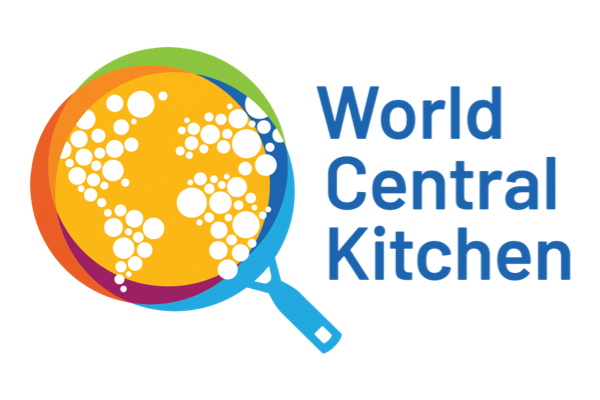Indy Chamber News Archives
IndyGo rolls out Marion County Transit Plan as Indy Chamber plans for fall referendum
Transit meets a vital need for connecting people with jobs, appealing to a skilled workforce that values lifestyle options, and encouraging new business investment as vital infrastructure. That’s why mass transit enhancements are a mainstay of the Indy Chamber policy agenda – this week, we can report significant progress on this important issue.
On Monday, IndyGo released a 5-year Marion County plan to implement Indy Connect, the regional strategy that was initiated and pushed by the Chamber and other private and public sector partners.
The Marion County Transit Plan extends high-frequency service to nearly 165,000 more residents than the current IndyGo system while more than doubling employment near high quality routes. It also adds three new rapid transit lines while restructuring routes to reduce travel times across Indianapolis. (Check out the map of the proposed system.)
“For businesses, reliable transportation means a more productive workforce,” said Mark Fisher, the Indy Chamber’s Vice-President of Public Policy. “By helping residents reach employment and education, transit can raise the standard of living and quality of life for the entire community. IndyGo has built on the Indy Connect process to offer a realistic plan that serves employers and the public.”
The proposed system will also run seven days a week, with buses coming more often, earlier in the morning, and later into the night. A new grid pattern for routes will make for easy transfers and quicker travel, especially the common crosstown commutes that can be inconvenient and time-consuming under the current map. The plan’s 71% increase in total service hours also helps accommodate the varied schedules common among many of Indy’s key industries.
“Employment in hospitality, healthcare, transportation and other service sectors often means evening and weekend work,” Fisher noted. “Today’s system makes even the typical commute a challenge, and jobs with non-traditional hours are mostly off-limits to those using transit. This plan recognizes the realities of our ‘24/7’ economy.”
“Access to transportation is one of the strongest factors in upward mobility by helping people access work and other necessities,” added IndyGo President and CEO, Mike Terry. “A robust transit system also has a powerful economic development impact – it attracts people who want more lifestyle options and the businesses who want to employ or serve them.”
“Convenient transit is really a baseline expectation of the Millennial workforce – and in turn, the employers that make talent a top priority,” agreed Fisher. According to the RCLCO National Consumer real estate survey, 77% of Millennial and Boomer homebuyers prefer more urban, walkable neighborhoods.
IndyGo has already undertaken technical planning and engaged in public outreach on the Red Line, which could be the region’s first rapid transit. But the Red Line is just one component of a robust countywide system that also includes an east-west rapid route from Cumberland to the airport along Washington Street (the Blue Line) and the Purple Line from Meridian to the east side along 38th Street, turning north to connect with Fort Benjamin Harrison.
These rapid routes will offer service every 5 or 10 minutes at peak commuting times with travel times that will be competitive with driving by running in dedicated lanes. This type of fixed-route service also has great potential for transit-oriented development, attracting new residents and housing, retail and commercial investment near its stations.
“Transit can be a catalyst for neighborhood redevelopment, and we’re excited by the opportunities for growth around these rapid routes,” said Fisher, who also serves on the IndyGo Board of Directors. “The first priority for this plan is expanded service, but transit-oriented development can also expand our tax base.
The Indy Chamber was a leading advocate for legislation passed by the General Assembly that gives some counties in Central Indiana a newfunding mechanism for transit by calling a referendum. The Marion County transit plan assumes passage of a referendum in 2016 at .25% with new funding available in 2017.
The Chamber is encouraging the Indianapolis City-County Council to approve the referendum for this November’s election; plans for a pro-transit campaign are underway pending the Council’s action to put the issue on the November ballot.
Public comment on the Marion County Transit Plan received through the end of February will be reviewed and considered for any final revisions to the plan ahead of an endorsement decision by the IndyGo Board of Directors in March. Indianapolis businesses and their employees are encouraged to attend public meetings, learn more at http://www.indygo.net/transitplan/ and make your voices heard.
Public meeting locations and dates:
Friday, February 5 at Central Library
Knoll Meeting Room
Open House from 10:00 a.m. – 5:00 p.m. with a brief presentation at 12:30 p.m.
Saturday, February 13 at the Haughville Library
Open House from 10:00 a.m. – 1:00 p.m. with a brief presentation at 12:00 p.m.
Monday, February 15 at Community Alliance of the Far Eastside (CAFÉ) 8902 E. 38th Street
Open House from 4:30 p.m. – 6:30 p.m. with a brief presentation at 5:30 p.m.
Saturday, February 27 at Central Library
Knoll Meeting Room
Open House from 10:00 a.m. – 2:00 p.m. with a brief presentation at 12:30 p.m.



